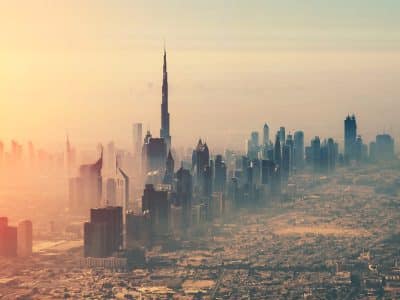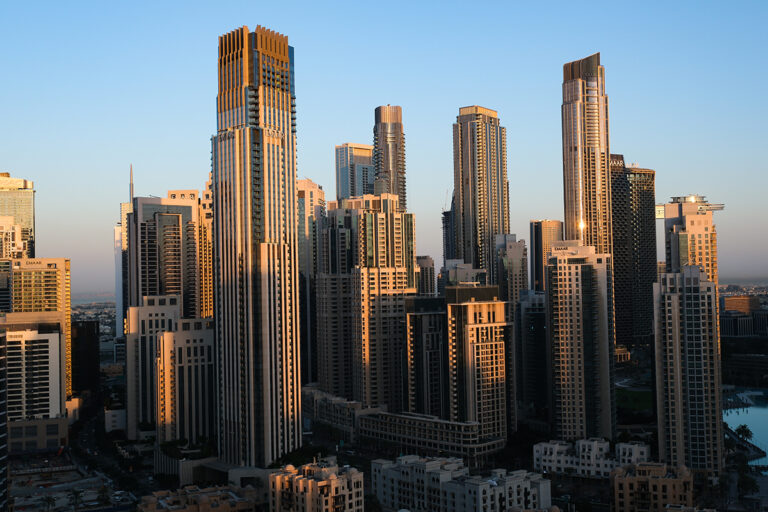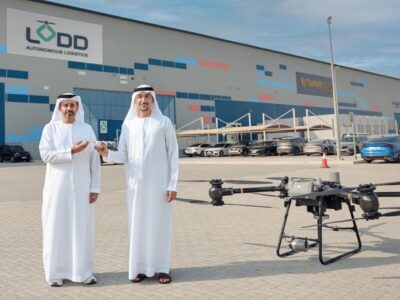Dubai‘s residential property market has achieved record transaction volumes in the first half of 2025, with 99,146 deals completed compared to just 26,891 in H1 2021, according to the latest Driven Properties market report.
The emirate’s property sector has experienced consistent year-on-year growth across all quarters from 2021 to 2025, with Q2 transaction volumes consistently outpacing Q1 figures each year. In Q2 2025 alone, 53,525 transactions were recorded, up from 45,621 in Q1.
The report attributes Dubai’s property boom to broader global economic conditions, including slower nominal growth, elevated interest rates, and rising geopolitical complexity worldwide.
Dubai property transactions surge 369% to record 99,146 deals in H1 2025
“Investors are increasingly rotating out of duration-sensitive, low-yielding assets and into real assets with inflation-linked cash flows,” the report stated.
Dubai has benefited from capital rotation as traditional 60/40 portfolio models underperform in the current macro environment.
The United States’ implementation of widespread tariffs affecting over 60 countries has introduced stagflationary pressures in Western economies, prompting investors to seek alternatives.
The UAE’s fiscal discipline contrasts sharply with other markets, maintaining a debt-to-GDP ratio of approximately 14 per cent whilst the US experiences budget deficit expansion under recent fiscal policies.
Jumeirah Village Circle dominated transaction volumes in Q2 2025 with 4,870 sales, followed by Business Bay (2,776), Damac Island City (2,680), and Dubailand Residence Complex (1,781).
Dubai Production City, Uptown Motorcity, Dubai Marina, Dubai Islands, Dubai Investment Park Second, and Dubai Creek Harbour completed the top ten communities.
However, ultra-luxury areas command the highest prices per square foot. Jumeirah Bay Island leads at AED 13,068 per square foot, with Jumeirah Second (AED7,623) and Umm Al Sheif (AED 7,504) following.
La Mer, Bluewaters Island, Palm Jumeirah, Jumeirah Islands, DIFC, Trade Center First, and Emirates Hills complete the premium pricing list.
Off-plan transactions have increased more than eightfold from 4,219 in Q1 2021 to 36,184 in Q2 2025, now capturing over 70 per cent of total quarterly transactions. Ready property sales grew at a steadier pace, reaching 15,170 in Q2 2025.
Off-plan residential prices rose 38 per cent over four years, from AED1,354 per square foot in Q1 2021 to AED1,866 per square foot in Q2 2025.
Apartments consistently recorded higher price points, reaching AED2,288 per square foot in Q2 2025, whilst villa prices doubled from AED 834 to AED 1,682 per square foot over the same period.
Ready property prices showed consistent growth, rising 64 per cent from AED1,002 per square foot in Q1 2021 to AED1,642 per square foot in Q2 2025. By Q2 2025, apartment and villa prices nearly aligned at AED1,903-1,904 per square foot.
Dubai’s office market has recorded sharp increases in capital values, with average prices rising 160 per cent from AED768 per square foot in 2021 to AED1,999 per square foot in 2025. Both Q1 and Q2 2025 prices exceeded AED1,950 per square foot.
Occupancy rates improved from 74.2 per cent in H1 2021 to an estimated 91.0 per cent in H1 2025, representing a 23 per cent increase.
Free zone districts including DIFC, DWTC, and Dubai Internet City maintain occupancy rates exceeding 95 per cent, with some buildings operating at or near full capacity.
The report identifies a supply surge between 2026 (136,169 units) and 2027 (122,862 units), compared to 60,203 units in 2025, before declining to 8,122 units by 2030. Fitch Ratings has projected a potential 10-15 per cent price correction in 2026 due to increased supply.
However, the report suggests this risk may be overstated, citing several factors: surging population growth from expatriate inflows, delayed handovers and phased project deliveries, increased labour force participation in white-collar sectors, and supportive macroeconomic fundamentals including GDP growth and continued business formation.
The report emphasises Dubai’s position as beneficiary of capital rotation from global investors seeking “collateral-backed cash flows”.
The emirate’s USD-pegged currency, zero capital gains tax, and regulatory transparency reinforce its safe-haven status for long-duration capital.
“Key capital allocators are focusing on “collateral-backed cash flows” as core to their allocation philosophy in 2H25” the report states, underpinning Driven Properties’ conviction in long-duration income-producing assets across Dubai and Abu Dhabi’s globally integrated, tax-efficient real estate market.







